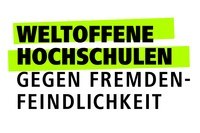Promotionsvorhaben
Firm internal Innovation Contests: Work Environment Perceptions and Employees´ Participation
Name
Björn Höber
Status
Abgeschlossen
Abschluss der Promotion
Erstbetreuer*in
Prof. Dr. Harald von Korflesch
Gutachter*in 2
Prof. Dr. Christoph Ihl
The present doctoral dissertation, titled “Firm internal Innovation Contests: Work Environment Perceptions and Employees’ Participation”, increases the body of knowledge on how Innovation Contests as a modern approach to the development of innovations can be better integrated into the organizational environments. Innovation Contests as an approach for facilitating innovation activities within large corporations are popular and have received increased attention both in theory and in practice. This work focuses on analyzing the optimal utilization of Innovation Contests in a corporate environment. Here, firms seek to internally conduct such contests to increase its innovation capacity and to exploit its employees’ knowledge within the boundaries of the firm. The overall aims of this dissertation are to investigate the impact of a supportive and facilitative work environment and to identify the necessary areas of action for the design of an engaging work environment for firm internal Innovation Contests. A strong theoretical foundation is provided by both the Componential Theory of Creativity and Innovation in Organizations and the Organizational Support Theory. To investigate this phenomenon in a real-world context, two studies were executed. In the first, quantitative study, the importance of employee perceptions of several work-environment factors (e.g., organizational encouragement and supervisory encouragement of creativity and innovation) as determinants of their affective organizational commitment, motivation, and intention to participate in Innovation Contests was proven. In the second, interrelated, qualitative study, the need for diverse areas of action was revealed in light of the experiences and profound expertise of Innovation Contest experts running firm internal Innovation Contests in European companies. Here, twelve diverse areas of actions with several constituents of an entire organizational support were extracted and characterized. The findings of both studies offer diverse practical and theoretical implications and help innovation managers to utilize and cope with the challenges of firm internal Innovation Contests.





